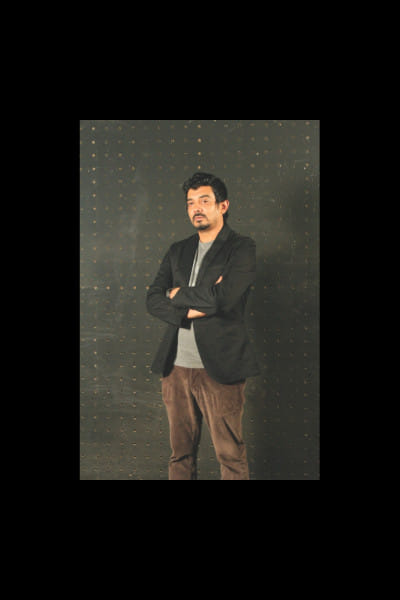Keep on rolling

Wahidul Islam Shuvrow carries an unseen burden with him. With a directorial debut at a very young age, Shuvrow has climbed the rungs high and fast and now carries the hopes of many a young director. The Daily Star recently caught up with him to find out exactly what brought him to where he is today and how. Sitting down at ntv's Zirani bazaar studio in Savar right after the last shot of Rupchanda-The Daily Star Super Chef had been taken, Shuvrow heaved a sigh of relief. An entire two months of work had finally come to an end. Despite a grueling work schedule exceeding 12 hours a day, seven days a week, Shuvrow did not look fazed. “It is part of the job and without hard work, one cannot really hope for success,” Shuvrow says when asked how he keeps up such a hectic work routine.
Shuvrow is one of the key directors of ntv, one of the most renowned channels in the country today. “My friend used to work in ntv. One day they had a programme in my hometown of Rajshahi and they asked me to help out. I arranged everything for them, from accommodation to food to extras,” he recalls. His zeal for his work endeared himself to the ntv team and he was approached to work as the Chief Assistant Director during the shoot for Close-up 1's 2005 edition. In 2006, Shuvrow formally joined the channel. His first show was Music Jamz, a music programme which went on to quickly carve a fan base for itself very early. This was followed by the lifestyle show “Style and Trends”, another show that easily garnered a loyal following. His early successes led to even more new shows, especially reality based shows, owing to Shuvrow's prowess not only behind the camera but also in terms of organising a live event without hiccups. Rupchanda-The Daily Star Super Chef was soon to gleam like the crown jewel in Shuvrow's directorial career and while many may have chosen to rest a bit on their laurels, Shuvrow's only desire is to persist.
“As a director, I feel we need to provide a lot more creative input than that is practiced here. I not only like to work behind the camera or in the editing room but I also like conceptualising new shows and presenting them in the way that appeals to most people,” he says. Shuvrow also says that his experience in organising numerous concerts such as the Eternal Aasha featuring Asha Bhosle, concerts in Dubai and London and a successful Boishahki concert he held in Pabna for five consecutive years have all helped him become a better director.
“We all want to make international standard shows but we are too quick to turn a blind eye to obvious problems,” Shuvrow says. “We have a much smaller market compared to, say, India and thus we have a smaller budget. We also get less rehearsal period and without the proper and modern equipment in terms of light and camera, production cannot be smooth.”
Shuvrow's childhood dream was to always be behind the camera. However, once his dream came true, his passion did not waver. “I want to know all aspects of direction and production. I am lucky to be where I am today but for anyone who wants to be in this line, my advice is to be determined. This is a very rich sector and there is a lot to learn and the first thing you must learn is to respect your craft,” he concludes.

 For all latest news, follow The Daily Star's Google News channel.
For all latest news, follow The Daily Star's Google News channel. 



Comments